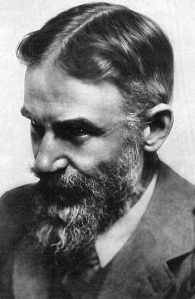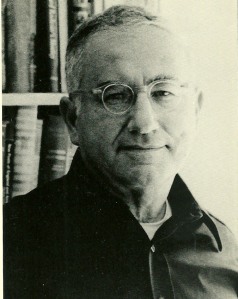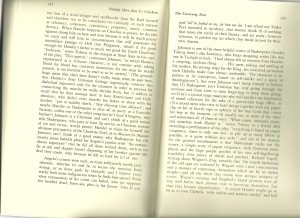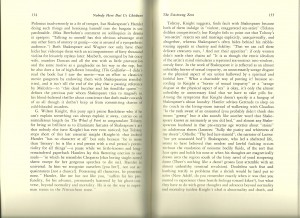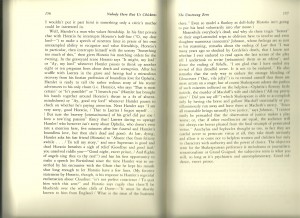Editor’s Note: This post first appeared on Jeet Heer’s blog Sans Everything. Jeet graciously suggested we reprint it here as coda to our hatefest, just as a reminder that everything should be hated, not just comics.
_________________
Shaw:No Lover of Shakespeare He
Over at Crooked Timber, they are having a lively discussion provoked by George Bernard Shaw’s scorn for Shakespeare. On many occasions Shaw expressed extreme distain for the Bard of Avon. In a 1906 letter Shaw wrote “I have striven hard to open English eyes to the emptiness of Shakespeare’s philosophy, to the superficiality and second-handedness of his morality, to his weakness and incoherence as a thinker, to his snobbery, his vulgar prejudices, his ignorance, his disqualifications of all sorts for the philosophic eminence claimed for him.”
Shaw’s opinions are easy to dismiss, but it is often forgotten that there is a long and venerable tradition of Shakespeare-hatred, a critical tradition that includes not just crank and reflexive contrarians but also some very great writers. Aside from Shaw, Voltaire and Leo Tolstoy were also vociferously hostile to Stratford’s favourite son. Voltaire actually started off as a champion of Shakespeare but turned against the English writer’s plays. More recently the novelist Joyce Carol Oates (in her collection Contraries) and mad-dog essayist Marvin Mudrick have taken aim at Shakespeare.
Below I’ve assembled a mini-anthology of Shakespeare-bashing. Although I myself am rather fond of Shakespeare, I have to say I think this tradition of attacking the dramatist is actually quite valuable. Unlike most of the thousands of volumes given over to bardolatry, the anti-Shakespeare brigade doesn’t assume that every jot and titter that flowed out of the playwright’s quill pen is pure gold. The hostile critics tend to be close readers, alert to the texture of the words and the logic of the plots. They pay Shakespeare the respect of careful scrutiny. The opponents of Shakespeare treat him as a living writer, one whose choices can be argued with, not as a marble statue commemorating universal and immemorial truths. Tolstoy in particular was a very astute critic and his long essay (or short book) on Shakespeare deserves more attention than it’s received.
So here is an anthology of Shakespeare-hatred.
Tolstoy:
I remember the astonishment I felt when I first read Shakespeare. I expected to receive a powerful esthetic pleasure, but having read, one after the other, works regarded as his best: “King Lear,” “Romeo and Juliet,” “Hamlet” and “Macbeth,” not only did I feel no delight, but I felt an irresistible repulsion and tedium, and doubted as to whether I was senseless in feeling works regarded as the summit of perfection by the whole of the civilized world to be trivial and positively bad, or whether the significance which this civilized world attributes to the works of Shakespeare was itself senseless. My consternation was increased by the fact that I always keenly felt the beauties of poetry in every form; then why should artistic works recognized by the whole world as those of a genius,—the works of Shakespeare,—not only fail to please me, but be disagreeable to me? For a long time I could not believe in myself, and during fifty years, in order to test myself, I several times recommenced reading Shakespeare in every possible form, in Russian, in English, in German and in Schlegel’s translation, as I was advised. Several times I read the dramas and the comedies and historical plays, and I invariably underwent the same feelings: repulsion, weariness, and bewilderment. At the present time, before writing this preface, being desirous once more to test myself, I have, as an old man of seventy-five, again read the whole of Shakespeare, including the historical plays, the “Henrys,” “Troilus and Cressida,” the “Tempest,” “Cymbeline,” and I have felt, with even greater force, the same feelings,—this time, however, not of bewilderment, but of firm, indubitable conviction that the unquestionable glory of a great genius which Shakespeare enjoys, and which compels writers of our time to imitate him and readers and spectators to discover in him non-existent merits,—thereby distorting their esthetic and ethical understanding,—is a great evil, as is every untruth.
George Bernard Shaw:
Search [in Shakespeare] for statesmanship, or even citizenship, or any sense of the commonwealth, material or spiritual, and you will not find the making of a decent vestryman or curate in the whole horde. As to faith, hope, courage, conviction, or any of the true heroic qualities, you find nothing but death made sensational, despair made stage-sublime, sex made romantic, and barrenness covered up by sentimentality and the mechanical lilt of blank verse.
All that you miss in Shakespeare you find in Bunyan, to whom the true heroic came quite obviously and naturally. The world was to him a more terrible place than it was to Shakespeare; but he saw through it a path at the end of which a man might look not only forward to the Celestial City, but back on his life and say: ‘Tho’ with great difficulty I am got hither, yet now I do not repent me of all the trouble I have been at to arrive where I am. My sword I give to him that shall succeed me in my pilgrimage, and my courage and skill to him that can get them.’ The heart vibrates like a bell to such utterances as this; to turn from it to ‘Out, out, brief candle,’ and ‘The rest is silence,’ and ‘We are such stuff as dreams are made on, and our little life is rounded by a sleep’ is to turn from life, strength, resolution, morning air and eternal youth, to the terrors of a drunken nightmare.
Marvin Mudrick: Known as the Dirty Harry of Literary Criticism
Marvin Mudrick’s Nobody Here But Us Chickens – arguably the most eccentric book of literary criticism ever written by a sane writer – is long out of print. So I’ve scanned in one chapter (“The Unstrung Zero”) dealing with Hamlet. Mudrick write about Shakespeare elsewhere in the book, sometime appreciatively, but here he is at his most tart. (The rest of the book, with discussions of everyone from Lady Murasaki to Leon Trotsky, is very much worth reading).

